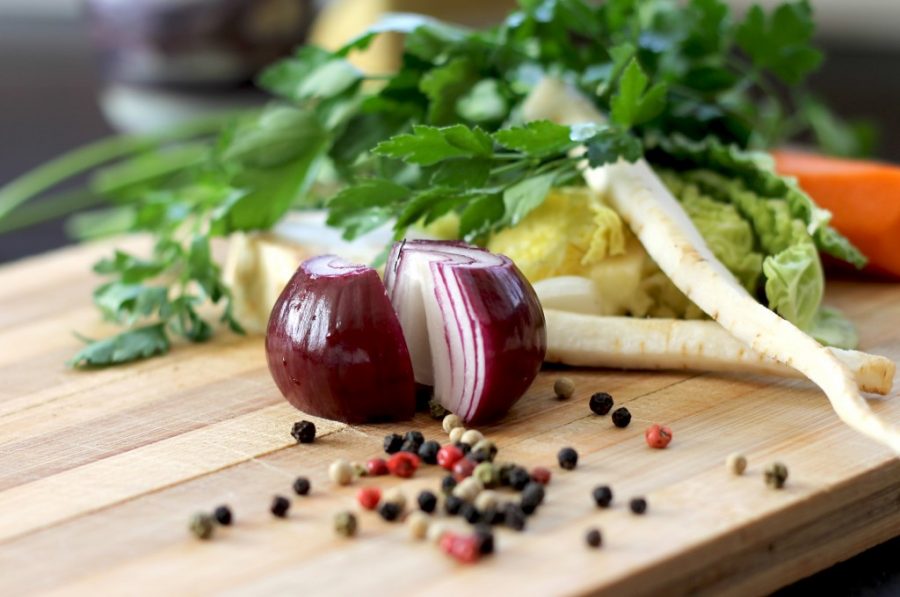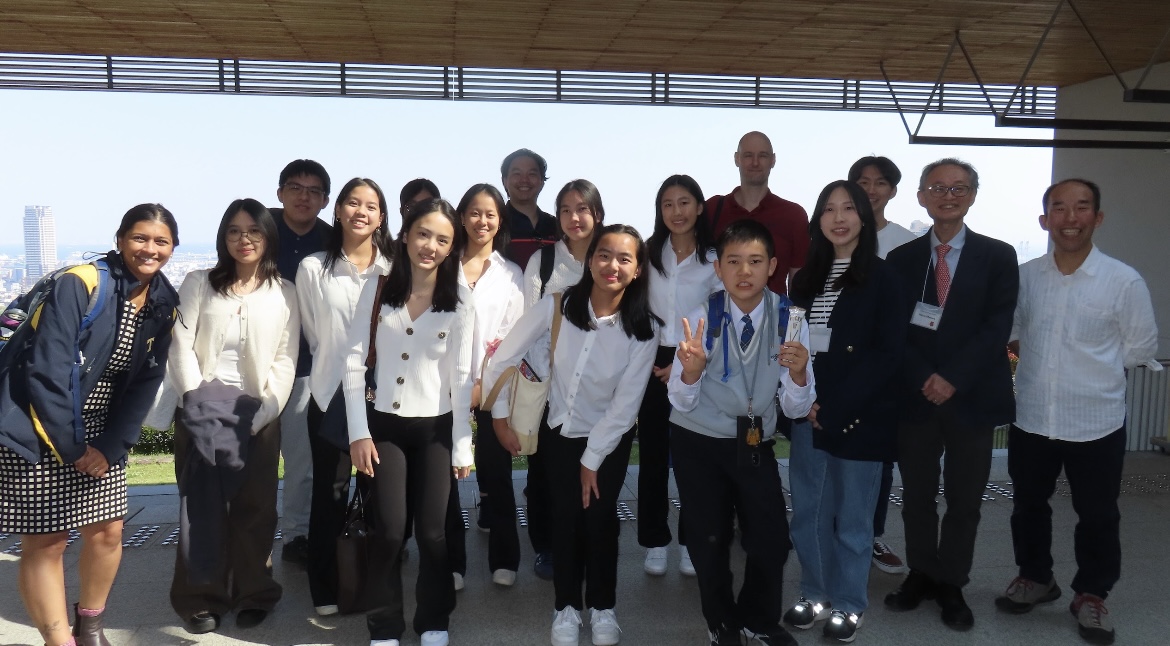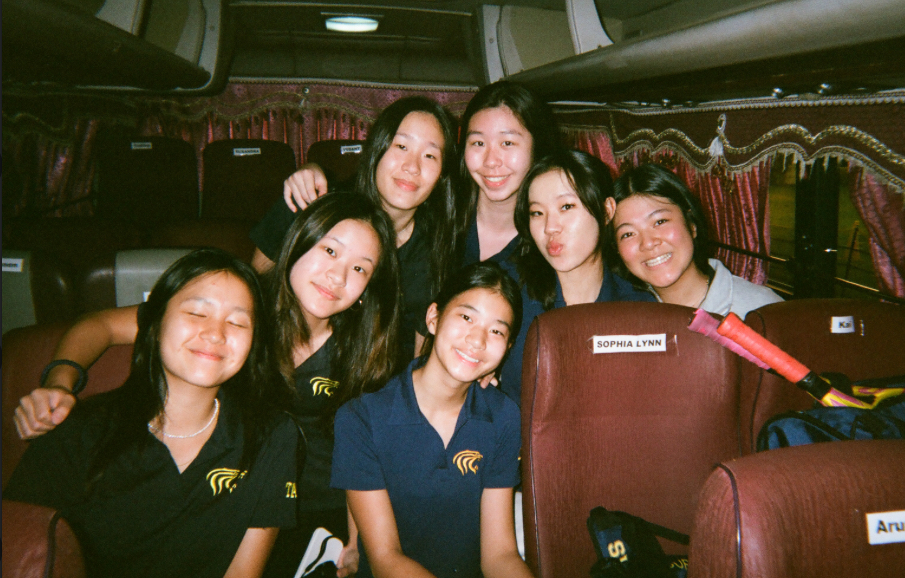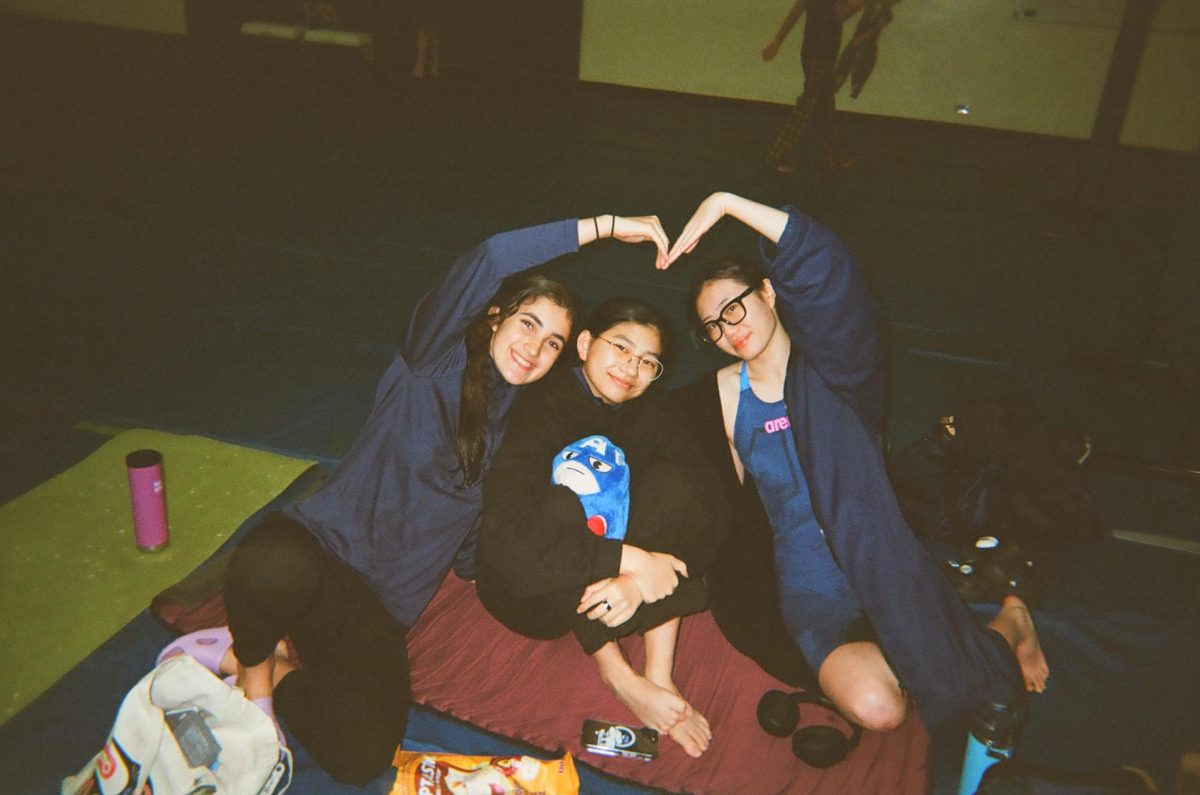This article is a part of Foodie’s Central – a series dedicated to taking an in-depth look into what goes in our body.
Other articles in this series:
Imagine a world where meat robots roam and graze in grassy fields. These “meat robots” are really genetically modified animals that have limited thinking functions and no pain receptors, and whose muscles are stimulated by impulses.
Mr. Monge, Upper School physics teacher, is certain that in about 25 years, the culinary and scientific world will develop these changes. Only then, will he eat meat.
Mr. Monge is a vegetarian who wishes that all meat-eaters would change their diets.
“You [meat-eaters] are part of the cycle of violence. Just because people have always did one thing doesn’t mean they should continue it,” he said. “People [in the future] will look back on this time and think, ‘Look at those savages. How could they commit such cruelties?’”
The reason Mr. Monge is a vegetarian is because he strongly opposes large scale factory farming.
Currently, around two thirds of the world’s meat comes from factory farms. At these farms, chickens are ground up alive, animals are constrained in disturbingly small cages, and chickens and ducks are even de-beaked to prevent them from pecking one another.
Moksha S. (11), has been a vegetarian all her life although because of her religion. Today her decision is also based on ethical considerations. “I don’t think it’s morally considerate to live on a diet that means death for something else if I could just as easily live without killing,” she said.
Neha P. (11) has a similar cultural background. However, her choice is different. As a Hindu growing up, she was allowed to eat meat, but was told that “cows symbolize mother earth” and “eating beef would be like eating your mother.” However, she still couldn’t resist meat. Because of this, she often gets judged for eating beef.
“[Family friends] always gasp and tsk. Sometimes they pray for me. One time, a friend tried to take me to a temple to get my sins cleansed because I was eating beef,” she said.
Ruby W. (11) also tried vegetarianism because she thought it was too cruel to kill animals. “But I love meat too much. I just couldn’t give it up,” she says. Just like Ruby, Phoebe K. (10), who became a vegetarian over summer, now eats meat again. “Since school started I’ve just been trying to eat less meat but I still do occasionally,” she says.
In the end, Mr. Monge believes that becoming a vegetarian is still a personal choice. But he reminds his students that they are “committing acts of cruelty by eating meat.” He hopes to raise awareness and see the world change, one meat eater at a time.




![[PHOTO COURTESY OF PIXABAY]](https://blueandgoldonline.org/wp-content/uploads/2025/03/white-18227_1280-1200x803.jpg)

![[PHOTO COURTESY OF PIXABAY]](https://blueandgoldonline.org/wp-content/uploads/2025/03/fire-6706674_1280-1200x800.jpg)
